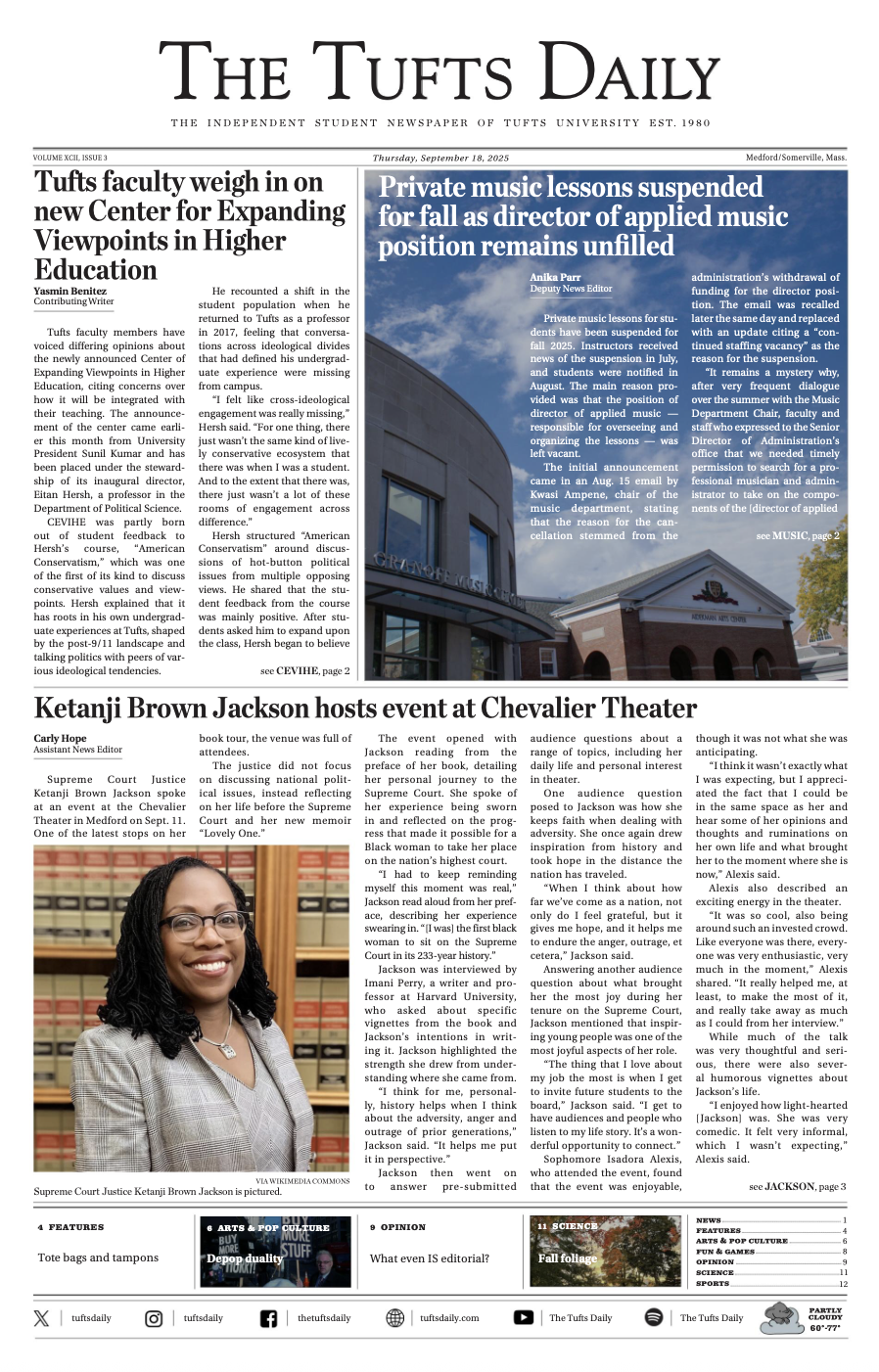As some seniors go to career fairs for finance and others go to fairs for communications, one group of students is headed someplace else entirely after graduation: the U.S. Armed Forces.
In the past couple of weeks, students in the Reserve Officer Training Corps (ROTC) program have begun to receive their post-graduation assignments.
Senior Caroline Kennedy will be going into military intelligence in the Army - her first choice. ROTC participants send their choices and applications to ROTC headquarters for their branch of the military: Army, Navy or Air Force. Marine Corps students go through the Navy ROTC.
Kennedy will spend 18 weeks in Ft. Huachuca, Ariz. before her permanent assignment begins. Most ROTC scholarship recipients are required to serve four years on active duty.
Students' applications include their superiors' rankings, their performance on physical fitness tests, the ROTC courses they took and the positions they held.
All Tufts ROTC students take their classes and participate in the program through the Massachusetts Institute of Technology. Kennedy is the student Battalion Commander for the Army ROTC Paul Revere Battalion at MIT. The ROTC program at Tufts ended after student protests during the Vietnam War.
Senior Frances Dixon, a member of the Air Force ROTC program, said superior officers rank the students based on leadership skills, the positions they held and the results of peer evaluations - a process she called "racked and stacked."
Air Force students also take the Air Force Officer Qualifying Test, similar to the SAT but with added sections for pilot and navigator topics. The test includes questions on spatial reasoning and asks students to draw maps.
Dixon took the test in February of her sophomore year and applied for the pilot and navigator programs. Her score qualified her to become a navigator, an eight-year commitment.
She applied for a position in personnel, though, and received her first choice last April. She was also assigned her third choice location, RAF Mildenhall which is 70 miles outside of London. "I specified that I wanted to be assigned to a base overseas," she said.
Dixon applied for a postponement of her active duty to attend graduate school in community health, and she said she will decide within two weeks whether to accept her assignment.
Navy students choose between service warfare, aviation, special operations and submarines. It is also possible to sign up for aircraft carriers - ships that run on nuclear power - but this is a highly selective program, senior Peter Downes said.
Downes was assigned to service warfare. Before Spring Break, the Navy ROTC students in each field are ranked and allowed to pick the ship on which they serve. The largest naval bases are located at Norfolk, Va., San Diego, Pearl Harbor and Japan, Downes said, so he will most likely be sent to one of these places.
"Basically, when you pick your ship, it is like picking your home port," he said.
According to junior Nicholas Schroback, a member of the Marine Corps ROTC program, Marines students do not receive their assignments until after graduation. Students are ranked after a six-month training program and then given assignments.





